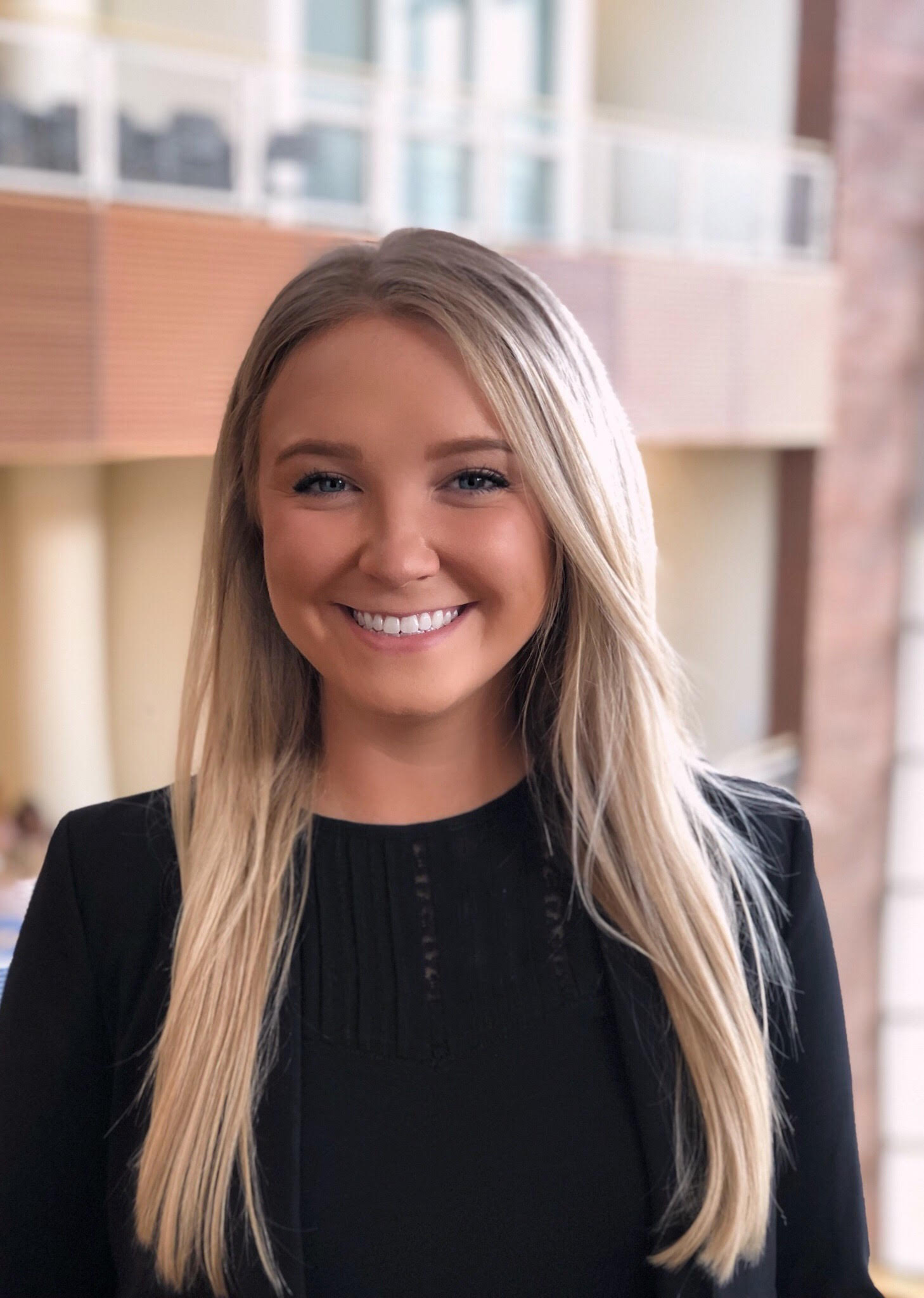Peer Adversity Predicts Interpersonal Needs in Adolescent Girls (May 31, 2022)
During the teenage years, as youth become more independent from their parents and choose how and with whom to spend their time, peers take on a prominent and important role[SHV2] . This increasing immersion in the peer group can have some beneficial effects[SHV4] (e.g., improving social skills) but a desire to conform to the interests, behaviors, and activities of peers in order to fit in can also lead to risky behaviors[SHV6] , raising concerns from parents, teachers, administrators, and researchers alike. While all girls possess some desire to form and maintain meaningful relationships with their peer groups, as well as motivation to gain peer approval, girls vary in how strongly they feel these needs. This has led researchers to wonder—what contributes to some girls relying heavily on social approval or possessing a strong need to belong while others do not?
 One factor that likely influences these needs is the type of peer experiences girls have been exposed to. Research has shown that when laboratory experiments create circumstances that lead youth to experience threats to social inclusion, it leads to a greater desire to reconnect with peers. Similar to how one may snack on food when they become hungry, when current levels of social inclusion become too low, girls may resort to “social snacking” to feed “social hunger.” Girls who have experienced negative peer encounters, such as bullying, rejection, or exclusion in their everyday life may become “socially starved” and, consequently, especially sensitive to their social environment. As such, girls may pay extra attention to what peers think of them and whether they fit in, leading to a greater need to belong and a higher need for approval. In this study, we looked at whether lifetime and recent peer adversity, as well as a laboratory manipulation, of social rejection may contribute to the strength of teenage girls' interpersonal needs.
One factor that likely influences these needs is the type of peer experiences girls have been exposed to. Research has shown that when laboratory experiments create circumstances that lead youth to experience threats to social inclusion, it leads to a greater desire to reconnect with peers. Similar to how one may snack on food when they become hungry, when current levels of social inclusion become too low, girls may resort to “social snacking” to feed “social hunger.” Girls who have experienced negative peer encounters, such as bullying, rejection, or exclusion in their everyday life may become “socially starved” and, consequently, especially sensitive to their social environment. As such, girls may pay extra attention to what peers think of them and whether they fit in, leading to a greater need to belong and a higher need for approval. In this study, we looked at whether lifetime and recent peer adversity, as well as a laboratory manipulation, of social rejection may contribute to the strength of teenage girls' interpersonal needs.
We used self-report and interview measures to collect information from 89 adolescent girls between the ages of 14 and 17 (average age = 15.85) from various racial and ethnic backgrounds (White = 59, African American = 19, Latina = 4, Asian =1, Other = 6). We asked girls to rate how much they agreed or disagreed with statements assessing their belonging needs (e.g., “I want other people to accept me”), how much self-worth is reduced by peer disapproval (e.g.,, “I feel like I am a bad person when other kids don’t like me”), and how much self-worth is improved by peer approval (e.g.,, “Being liked by other kids makes me feel better about myself”). We also asked girls to rate situation-specific needs, like belongingness (e.g.“I felt disconnected”), before and after a laboratory manipulation during which girls were excluded as part of a virtual ball-tossing game. Finally, through one-on-one interviews with girls, we collected information on lifetime and recent experiences of peer adversity (for example, friendlessness, social isolation, rejection, bullying, and conflict with friends) that were rated for severity by a team of coders.
We found that, although neither lifetime nor recent peer adversity predicted the strength of general belonging needs, both predicted threatened situation-specific needs prior to the laboratory manipulation. Further, girls who had experienced higher levels of lifetime peer adversity continued to show threats to their situation-specific interpersonal needs following the manipulation, consistent with the idea that chronic peer adversity may “starve” girls of social acceptance, leading to greater social hunger. When examined together, lifetime and recent peer adversity contributed jointly to girls' motivation to avoid peer disapproval. Our pattern of findings suggested that, regardless of lifetime experiences of peer adversity, recent peer adversity may incline adolescent girls toward heightened sensitivity to negative judgments from their peers, such that they experience low self-worth in the face of peer disapproval. Finally, when girls experienced recent peer adversity, their self-worth was less likely to be bolstered by peer approval.
Overall, our results suggest that recent peer adversity may incline girls to be more sensitive to peer evaluation, ultimately influencing how much they rely on peers to determine their self-worth. Therefore, our findings support the idea that adverse peer experiences predict the strength of situation-specific belongingness and general approval needs in teenage girls. They also highlight that these needs may be a fruitful target for interventions aimed at reducing risk for impaired social competence and emotional distress in girls who have experienced peer adversity. By altering how girls judge their self-worth, such as teaching them to incorporate their own unique or individual strengths into self-appraisals outside of how their peers view them, teenage girls may be directed toward more healthy development.
[SHV2]Steinberg, L., & Morris, A. S. (2001). Adolescent development. Annual Review of Psychology, 52, 83–110. https://doi.org/10.1146/annurev.psych.52.1.83
[SHV4]Rudolph, K. D. (2021). Understanding peer relationships during childhood and adolescence through the lens of social motivation. In Advances in Motivation Science (Vol. 8, pp. 105-151). Elsevier.
[SHV6]Steinberg, L. (2004). Risk taking in adolescence: what changes, and why?. Annals of the New York Academy of Sciences, 1021(1), 51-58.
https://doi.org/10.1196/annals.1308.005
 Haley Skymba, M.S., is a fifth-year doctoral student in the clinical/community division of psychology at the University of Illinois at Urbana-Champaign. Prior to beginning her graduate program, she received her B.S. in Neuroscience from Moravian College. Her research examines how early life adversity impacts emotional functioning during adolescence from behavioral and neural perspectives.
Haley Skymba, M.S., is a fifth-year doctoral student in the clinical/community division of psychology at the University of Illinois at Urbana-Champaign. Prior to beginning her graduate program, she received her B.S. in Neuroscience from Moravian College. Her research examines how early life adversity impacts emotional functioning during adolescence from behavioral and neural perspectives.

Cali Joyce graduated from the University of Illinois at Urbana-Champaign in 2019 with her B.S. in Psychology. She is currently a doctoral student at the Chicago School of Professional Psychology.
Eva Telzer is an Associate Professor of Psychology and Neuroscience at UNC Chapel Hill. She is an Associate Editor at Child Development and Social Cognitive Affective Neuroscience, and the co-director of the Winston National Center on Technology Use, Brain and Psychological Development. Her research examines how social and  cultural processes shape adolescent brain development, with a focus on both prosocial and risk-taking behaviors, family and peer relationships, and long-term psychological well-being. She has authored over 175 publications, and has received numerous awards for her work, an APA Rising Star Award, a NARSAD Young Investigator Grant, a Jacobs Foundation Young Scholars Award, an early career award from the Society of Research on Adolescence, a Young Investigator Award from the Flux Congress Society for Developmental Cognitive Neuroscience, the American Psychological Association’s Boyd McCandless Award for Early Career Contribution to Developmental Psychology, and the American Psychological Association Distinguished Scientific Award for Early Career Contribution to Psychology.
cultural processes shape adolescent brain development, with a focus on both prosocial and risk-taking behaviors, family and peer relationships, and long-term psychological well-being. She has authored over 175 publications, and has received numerous awards for her work, an APA Rising Star Award, a NARSAD Young Investigator Grant, a Jacobs Foundation Young Scholars Award, an early career award from the Society of Research on Adolescence, a Young Investigator Award from the Flux Congress Society for Developmental Cognitive Neuroscience, the American Psychological Association’s Boyd McCandless Award for Early Career Contribution to Developmental Psychology, and the American Psychological Association Distinguished Scientific Award for Early Career Contribution to Psychology.
 Karen D. Rudolph is a Professor at the University of Illinois, Urbana-Champaign. She was a recipient of a William T. Grant Faculty Scholars Award, James McKeen Cattell Sabbatical Award, and Robert B. Cairns Carolina Consortium on Human Development Capstone Award. She has served as co-editor of the Handbook of Developmental Psychopathology and as an Associate Editor for the Journal of Clinical Child and Adolescent Psychology. Her research examines multi-level risk for the development of psychopathology, especially depression.
Karen D. Rudolph is a Professor at the University of Illinois, Urbana-Champaign. She was a recipient of a William T. Grant Faculty Scholars Award, James McKeen Cattell Sabbatical Award, and Robert B. Cairns Carolina Consortium on Human Development Capstone Award. She has served as co-editor of the Handbook of Developmental Psychopathology and as an Associate Editor for the Journal of Clinical Child and Adolescent Psychology. Her research examines multi-level risk for the development of psychopathology, especially depression.

